Himalayan Cat BreedingFind the Perfect Match
Connect with dedicated Himalayan cat breeders committed to health, beauty, and the gentle temperament that defines this exquisite breed.
Brachycephalic Breed - Special Care Requirements
Himalayan cats have flat faces (brachycephalic structure) that cause significant health challenges including breathing difficulties, eye problems, and dental issues. This requires special consideration in breeding programs.
Essential breeding considerations: Select for more moderate facial features to improve breathing, avoid extreme flat faces that compromise welfare, maintain temperature-controlled environments, and provide extensive education to new owners about daily care requirements.
Daily care requirements: Eye cleaning (multiple times daily), regular grooming to prevent matting, monitoring for breathing distress, and maintaining cool temperatures to prevent heat stress.
Himalayan Cat Breed Characteristics
Understanding your Himalayan's unique traits and health needs is essential for responsible breeding
Weight Range
Male: 9-14 lbs
Female: 7-11 lbs
Size
Male: Medium to Large
Female: Medium
Life Expectancy
9-15 years
With proper care
Temperament
Calm, Gentle
Quiet & affectionate
Unique Himalayan Cat Traits
Persian-Siamese Heritage
Created in the 1950s by crossing Persians with Siamese. Combines Persian body type and coat with Siamese colorpoint pattern and blue eyes.
Colorpoint Pattern
Temperature-sensitive coloring with darker points on ears, face, paws, and tail. Available in seal, chocolate, blue, lilac, flame, and more.
Striking Blue Eyes
All Himalayans have vivid blue eyes inherited from Siamese ancestry. Eye color intensity varies but should be deep and clear.
Gentle Indoor Companion
Calm, quiet nature perfect for indoor living. Less active than Siamese but more interactive than typical Persians. Devoted to their families.
Himalayan Cat Breeding Guidelines
Follow these essential guidelines for responsible Himalayan cat breeding
Optimal Breeding Age
Male Himalayan Cats (Studs)
12 months to 8 years
Female Himalayan Cats (Queens)
12 months to 6 years
Himalayas mature slowly like Persians. Wait until full physical and emotional maturity before breeding for healthiest kittens.
Health Testing Requirements
- PKD genetic test - MANDATORY (both parents must be negative)
- FIV/FeLV testing - MANDATORY
- Heart screening (echocardiogram) - MANDATORY annually
- Eye examination by veterinary ophthalmologist - MANDATORY
- Blood type testing - MANDATORY (prevent neonatal isoerythrolysis)
- Breathing assessment - MANDATORY (document brachycephalic severity)
- Dental examination - Highly recommended
- PRA genetic testing - Recommended
Comprehensive testing essential due to health risks from both Persian and Siamese ancestry.
Breeding Frequency
Queens: Maximum 2 litters per year, 3-4 litters lifetime
Minimum 6 months between litters
Conservative breeding approach recommended due to potential birthing difficulties from brachycephalic structure.
Excellence in Himalayan Cat Breeding
- Facial Structure Balance: Select for more open facial structure to improve breathing and reduce eye tearing while maintaining breed type.
- Color Genetics Mastery: Understanding colorpoint inheritance helps predict kitten colors. All Himalayans are genetically colorpoint (cs/cs).
- Grooming Excellence: Daily grooming prevents painful matting. Teach new owners proper techniques including sanitary clips and eye care.
- Temperature Management: Maintain cattery at 68-72°F year-round. Brachycephalic structure makes heat regulation difficult.
- Birthing Considerations: C-sections more common due to large kitten heads and narrow pelvis. Have emergency veterinary plan.
Himalayan Cats Available for Breeding Near You
Connect with verified Himalayan cat owners for safe and ethical breeding

Omnia Indigo Lux
Himalayan mix

Pixie
Himalayan mix

Walle
Himalayan mix

Star
Himalayan

Prada
Himalayan

Chanel
Himalayan mix

Lola
Himalayan

Sasha
Himalayan
How Himalayan Cat Breeding Works
From profile to puppies - your himalayan cat journey in 4 simple steps
Create Your Pet's Profile
Set up a detailed profile with photos, health records, and pedigree information
Discover Perfect Matches
Browse verified breeding partners based on breed, location, and compatibility
Connect & Communicate
Message owners directly to discuss breeding plans and health certifications
Successful Breeding
Meet safely, complete breeding agreements, and welcome healthy puppies
Create Your Pet's Profile
Set up a detailed profile with photos, health records, and pedigree information
Discover Perfect Matches
Browse verified breeding partners based on breed, location, and compatibility
Connect & Communicate
Message owners directly to discuss breeding plans and health certifications
Successful Breeding
Meet safely, complete breeding agreements, and welcome healthy puppies
Why Choose Petmeetly for Himalayan Cat Breeding?
Join thousands of responsible himalayan cat owners who trust us for quality breeding connections
Verified Profiles Only
Every breeder is verified, ensuring you connect with genuine, responsible pet owners.
Location-Based Matching
Find breeding partners near you to make meetings convenient and stress-free.
Smart Filtering
Customize your search with detailed filters for breed, age, health status, and more.
Direct Communication
Chat directly with pet owners to discuss all details before making any commitments.
Ready to Find Your Himalayan Cat's Perfect Match?
Join thousands of responsible himalayan cat owners who've found quality breeding partners on Petmeetly.
Get Started NowSuccess Stories from Himalayan Cat Breeders
Real stories from cat owners who found perfect breeding matches on Petmeetly
Yes, we found a mate for my male cat. We are waiting date and time
Pelin
Florida, US
Victor was an amazing match, and his owner was super helpful and accommodating!
Hannah
Washington, US
We were successful in finding a mate. The platform has been great. Wishing there were more cats options. Seems it hasn’t changed since we’ve been on.
Betsy Aird
California, US
Health Management for Himalayan Cats
Comprehensive health management is essential due to challenges inherited from both Persian and Siamese lines
Polycystic Kidney Disease (PKD)
PreventableGenetic testing is MANDATORY. DNA test both parents to ensure PKD-negative status. This hereditary disease from Persian ancestry can be completely prevented through testing. Annual kidney function monitoring recommended even in PKD-negative cats.
Brachycephalic Airway Syndrome
High PriorityFlat face causes severe breathing difficulties. Select breeding partners with more moderate facial structure. Avoid extreme flat faces. Monitor breathing during stress or heat. Maintain cool environment. Surgery may be needed in severe cases.
Eye Problems (Excessive Tearing)
InherentFlat face causes tear duct obstruction leading to constant tearing and staining. Daily eye cleaning ESSENTIAL. Risk of corneal ulcers from hair irritation. Select for more open eye structure when possible. Teach owners proper eye care.
Dental Malocclusion
CommonBrachycephalic structure causes misaligned teeth and jaw problems. Regular dental examinations essential. Early intervention prevents severe issues. Select breeding partners with better jaw alignment. May require tooth extractions.
Progressive Retinal Atrophy (PRA)
PreventableGenetic testing available for PRA variants affecting both Persian and Siamese lines. Annual ophthalmologist examinations mandatory. Select clear-tested breeding partners. Early detection allows management of vision loss.
Hypertrophic Cardiomyopathy (HCM)
ManageableAnnual echocardiogram screening mandatory for all breeding cats. Can affect both Persian and Siamese bloodlines. Select partners from HCM-clear families. Remove affected cats from breeding program immediately.
Feline Hyperesthesia Syndrome
ManageableNeurological condition more common in Siamese-derived breeds. Causes skin rippling, excessive grooming, aggression. Stress reduction essential. Document in breeding records if present. May have genetic component.
Heat Sensitivity
InherentBrachycephalic structure and thick coat make heat regulation difficult. NEVER expose to high temperatures. Air conditioning essential in warm climates. Risk of heat stroke higher than other breeds. Monitor during summer months.
Respiratory Infections
High RiskFlat face increases susceptibility to upper respiratory infections. Strict vaccination protocols. Quarantine new cats. Immediate veterinary care for any respiratory symptoms. Can become chronic in brachycephalic cats.
Coat Matting & Skin Issues
PreventableLong, dense coat requires DAILY grooming to prevent painful matting. Matting can cause skin infections and parasites. Professional grooming every 6-8 weeks recommended. Educate owners on proper grooming techniques.
DUAL HEALTH PRIORITIES
Himalayan cats face two major health challenges that responsible breeders must address:
1. PKD (Polycystic Kidney Disease):
- Inherited from Persian ancestry
- Completely preventable through genetic testing
- Both parents MUST test negative
- Testing costs under $50 and saves lives
2. Brachycephalic Syndrome:
- Flat face causes breathing difficulties
- Select for more moderate facial features
- Avoid extreme flat faces that compromise welfare
- Educate owners about temperature management
Your commitment to health testing and selective breeding creates healthier, happier Himalayan cats for future generations.
Explore Popular Cat Breeds
Discover breeding guides for different cat breeds and find the perfect match for your breeding program
Begin Your Himalayan Cat Breeding Journey
Join a community of dedicated breeders preserving the beauty and gentle nature of Himalayan cats while prioritizing health

